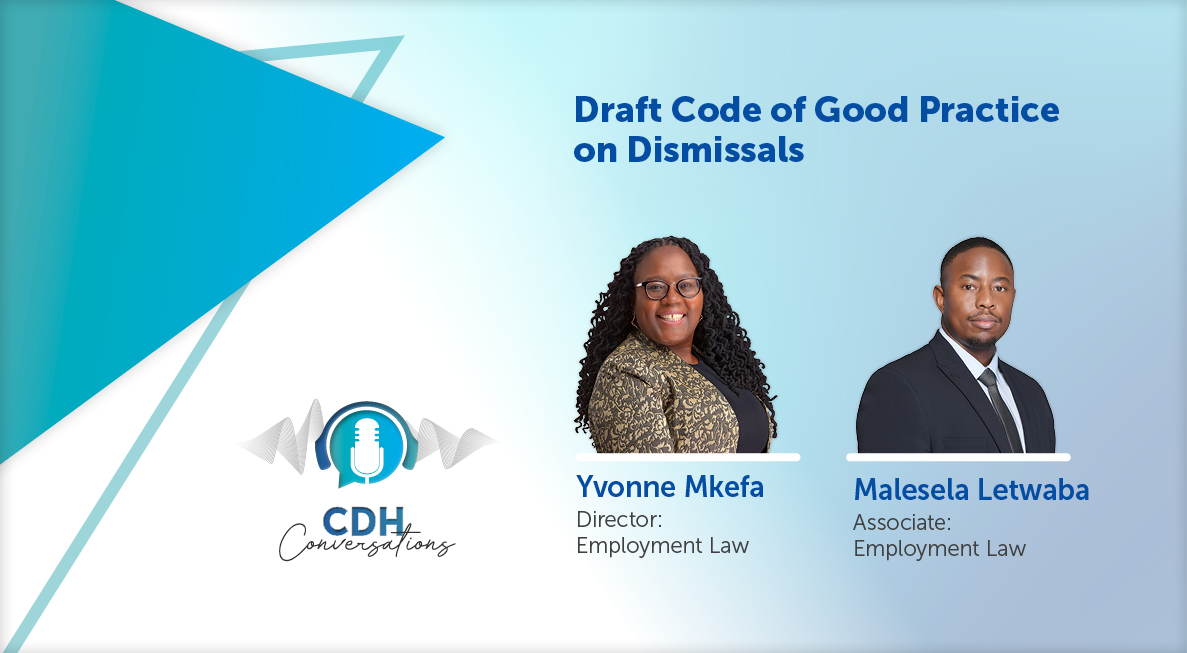Silence is golden, or is it? A closer look at the terminability of contracts of unspecified duration
Thomas Carlyle once proclaimed, "Speech is silvern, Silence is Golden." It means that speech is like silver, in that speech only lasts a while, but silence is golden and lasts an eternity (see http://www.bookrags.com/essay-2004/4/9/14455/25824/, accessed 20 June 2014). Be that as it may, the sounds of silence may prove deafening for a contracting party seeking to terminate and/or escape from an agreement which is silent in respect to its duration, particularly in light of the recent judgment delivered by the Supreme Court of Appeal in the matter of Plaaskem (Pty) Ltd v Nippon Africa Chemicals (Pty) Ltd (574/13) [2014] ZASCA 73 (29 May 2014).
The dispute between the parties had its origin in a written agreement concluded on 25 February 2005 (“the contract”). The issue before the court was whether the contract contained a tacit term to the effect that the contract was terminable by either party on reasonable notice. The Appellant in the High Court pleaded that the contract contained a tacit, alternatively implied term to the effect that the contract was terminable on reasonable notice. The written termination that the Appellant relied upon was rejected by the Respondent as being of no force and effect because, according to the Respondent, the contract did not contain a tacit term that it could be terminated on reasonable notice. The High Court held that the contract between the parties did not have a tacit, alternatively an implied, alternatively on a proper construction thereof, a term that the agreement was terminable on reasonable notice and that the purported notice of cancellation of the agreement by the Appellant was invalid and of no effect.
The SCA found that the contract contained no express term dealing with its duration and that there was no indication that the parties intended to be bound in perpetuity. The court also found that the contract required the parties to form and maintain a close working relationship with regular contact and interaction between them and that this strongly suggested an intention by the parties not to remain bound in perpetuity.
The legal principle: When parties bind themselves to an agreement which requires them to work closely together and to have mutual trust and confidence in each other it is reasonable to infer that they did not intend to bind themselves indefinitely, but rather contemplated termination on reasonable notice. Where an agreement is silent as to its duration, it is terminable on reasonable notice in the absence of a conclusion that it was intended to continue indefinitely.
Silence may very well last an eternity. However, silence in respect to the duration of a written agreement simply proves that the wise words “better to be silent and be thought a fool, than to open ones mouth and remove all doubt” should not be heeded in all circumstances, as silence in the context of written agreements may not only render one a fool but also put the parties to unnecessary legal costs. Termination of the contract should be contemplated by the parties at the time of the drafting thereof.
The information and material published on this website is provided for general purposes only and does not constitute legal advice. We make every effort to ensure that the content is updated regularly and to offer the most current and accurate information. Please consult one of our lawyers on any specific legal problem or matter. We accept no responsibility for any loss or damage, whether direct or consequential, which may arise from reliance on the information contained in these pages. Please refer to our full terms and conditions. Copyright © 2026 Cliffe Dekker Hofmeyr. All rights reserved. For permission to reproduce an article or publication, please contact us cliffedekkerhofmeyr@cdhlegal.com.
Subscribe
We support our clients’ strategic and operational needs by offering innovative, integrated and high quality thought leadership. To stay up to date on the latest legal developments that may potentially impact your business, subscribe to our alerts, seminar and webinar invitations.
Subscribe




